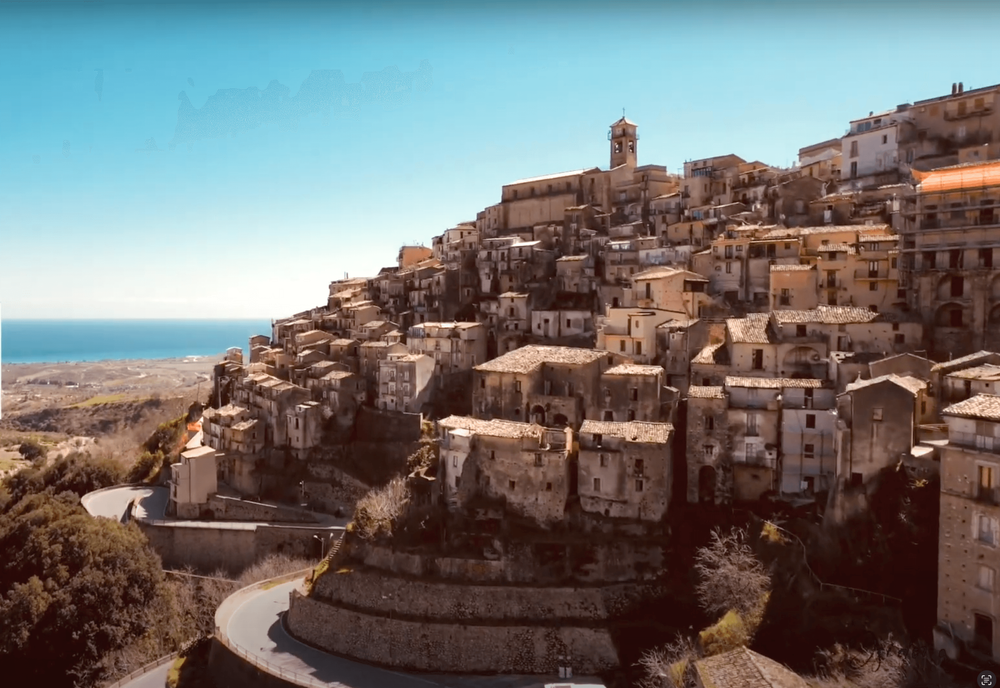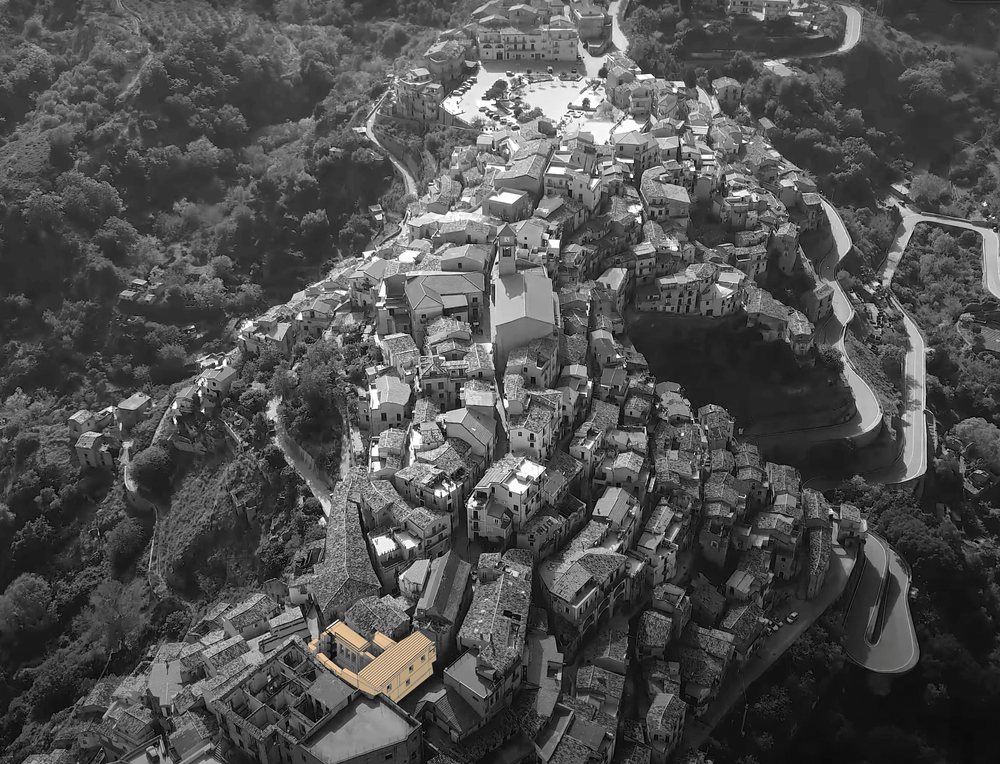This hilltop stronghold, fending off invasive Saracens from the Sea, was led by the first duke of Calabria; Robert Guiscard and later becoming a barony under rule of one Filippo Di Badolato.
Badolato's beautiful location has not only been a blessing and came with a cost. Earthquakes registered in 1640, 1659 and 1783 damaged Badolato severely and brought ruination to Calabrias romantic villages.
The most recent catastrophic earthquake was in 1947, causing a landslide and damaging the Borgo and many buildings.
In 1951, a flood brought the town to its knees, after which the Italian state decided to built the first houses in Badolato Scalo, next to the railway station and along the Ionian coast, thus giving birth to Badolato Marina.
From the 50's on, many people migrated to Switzerland, Germany, Argentina and France.
In Wetzikon by Zurich, Switzerland lives since then the biggest community of Badolatesi and the town has been nominated by the municipality as the twin town of Badolato.
The librarian Mimmo Lanciano provocatively proposed putting Badolato up for sale in 1986.
The idea of 'selling' the beautiful village, grotesque at first for many, triggered an unpredictable curiosity on the contrary. Never before had the municipality been so much the focus of media attention. Televisions and newspapers from all over the world intervened.
The Ararat was a ship that arrived on the evening of 26 December 1997 in the waters of Badolato, boarded with 826 Kurdish migrants fleeing war and misery. The people of Badolato welcomed the migrants with their characteristic hospitality. Recent events have seen Badolato take a leading role in a project regarding hospitality and solidarity towards migrants.
Introducing; Pallievi
The unfinished gem. An old palazzo, with big intent and greater beauty, never born. Until now. A half built and frozen in time piece of architecture, which holds the tale of a tragedy impeding its construction...
Palazzo 'Mpelliccia
The palazzo 'Mpelliccia dates back to the 17th century. And a tragic murder occurred on January 25th in 1861 giving the palazzo its name. A murder in cold blood. Over salami.
Two bandits named Antonio and Rocco Caporale tried stealing oil, cereals and salami from the Barons Paparo's palace storerooms, separated by the alleyway of D. Franco 'Mpelliccia palace.
'Mpelliccia caught wind and informed Paparo. The bandits failed their attempt and were punished for the crime. The Caporale bandits seeked revenge. On the misty evening 25th of January 1861, the Caporals hidingly whistled and called for 'Mpelliccia who rushed down the stairs just to be caught by surprise, asking in fear;
“What do you want?” followed by four gunshots.
Oh night of sorrow! His children were torn with grief. Thus ended the life of a man, for whom evidently the love of honesty prevailed over anything else. In the souls of the Badolatesi, the murder must have caused a great echo. How much popular this man really was, we are told by the memory that has survives to this day, and the poetic halo created around him.

